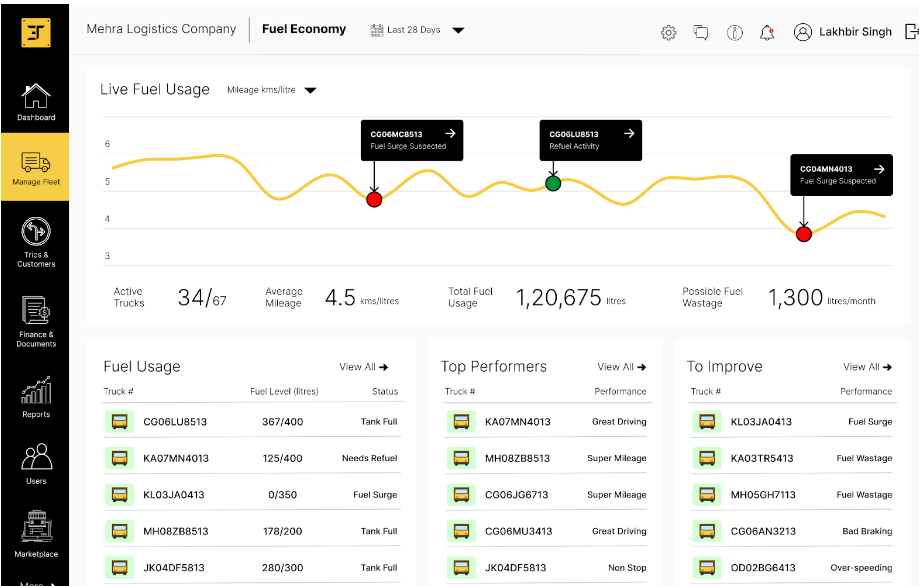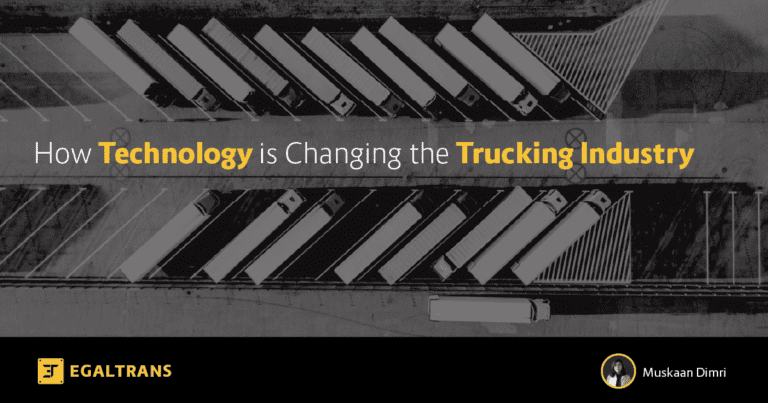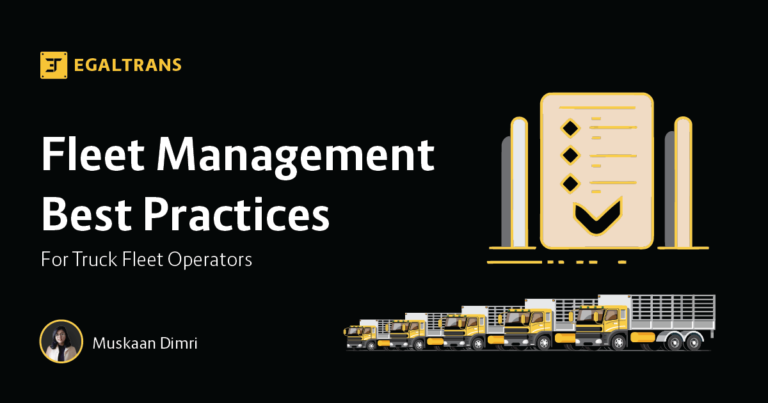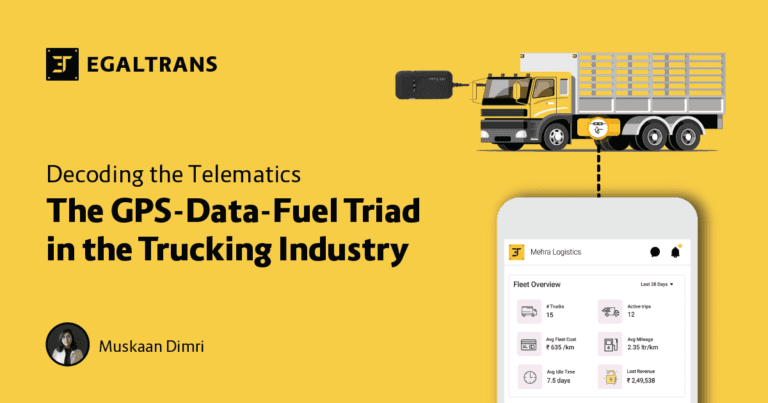The trucking industry in India is the backbone of its goods transportation. As of 2021, India had a road network of over 5.9 million kilometers, making it the second-largest road network in the world. With such an extensive network and the trucking industry contributing significantly to the Indian economy, managing operational costs becomes paramount. Fuel, being one of the most significant expenses, needs effective monitoring. But how does one go about choosing the right fuel monitoring system in the Indian context? This blog will guide you through it.
Understanding Fuel Monitoring Systems
Fuel monitoring system tracks the amount of fuel consumed by vehicles within a fleet. It provides data that can help fleet managers to:
- Determine fuel efficiency
- Detecting fuel theft or leakage
- Predict future fuel needs
- Analyze and improve driver behaviors affecting fuel consumption
Factors to Consider When Choosing the Right Fuel Monitoring System
Understand the Indian Trucking Landscape
Before diving into the systems themselves, it’s crucial to comprehend the nuances of Indian trucking:
- Diverse Routes: From the hilly terrains of Himachal Pradesh to the arid deserts of Rajasthan, trucks in India traverse a range of geographic conditions. The system you choose should be adaptable to these varied conditions.
- Fuel Quality Variances: Fuel quality can vary across different states and regions in India. A good system should be able to factor in these differences to provide accurate data.
Features to Look For
- Real-Time Monitoring: Considering the vast distances covered, real-time data on fuel consumption, refilling, and theft is crucial.
- Integration Capabilities: The system should seamlessly integrate with other fleet management tools or software in use.
- Analytics: Advanced systems offer analytics that can predict fuel consumption based on route, driving habits, and vehicle type.
Local Support & Maintenance
Given the extensive road network and the remoteness of some routes, it’s crucial to select a fuel monitoring system backed by robust local support. Downtimes can be costly, and having a local team that can address issues promptly is invaluable. Look for software that provides comprehensive reports and analytics. This helps in making informed decisions and recognizing patterns or anomalies. Also ensure that the provider is offering timely maintenance and support.
Cost vs. ROI
While initial costs might seem high for premium systems, consider the return on investment (ROI). A good system can lead to significant savings by preventing fuel theft, optimizing routes, and improving driving habits. Consider the return on investment. Will the savings in fuel costs and efficiencies gained outweigh the system’s costs. For Eg. The initial cost for installation of a full fledged fuel monitoring solution ranges upto 2 lakhs but in the longer it will save fuel upto 10 lakh along with maintaining good engine condition therefore this will turn into an investment for your fleet.
User Reviews & Recommendations
Lastly, leverage the power of the Indian trucking community. Talk to other fleet operators, join forums, and read reviews to get insights into the best systems suited for Indian conditions. Check online reviews, recommendations and market trends before taking any decisions in the investment.

With the trucking industry in India expected to grow exponentially in the coming years, investing in the right fuel monitoring system is not just a choice but a necessity. It ensures efficiency, reduces operational costs, and boosts profitability. By considering the unique challenges of Indian roads and the specific needs of the trucking industry, fleet operators can make an informed decision that benefits their business in the long run.







[…] Fleet management solutions leverage technologies such as GPS, geofencing, AI, machine learning, and predictive analytics to help your business run smoothly and increase productivity. Common fleet management capabilities include fraud reduction, digital transformation, tax compliance and reporting, route optimization, and tracking. […]